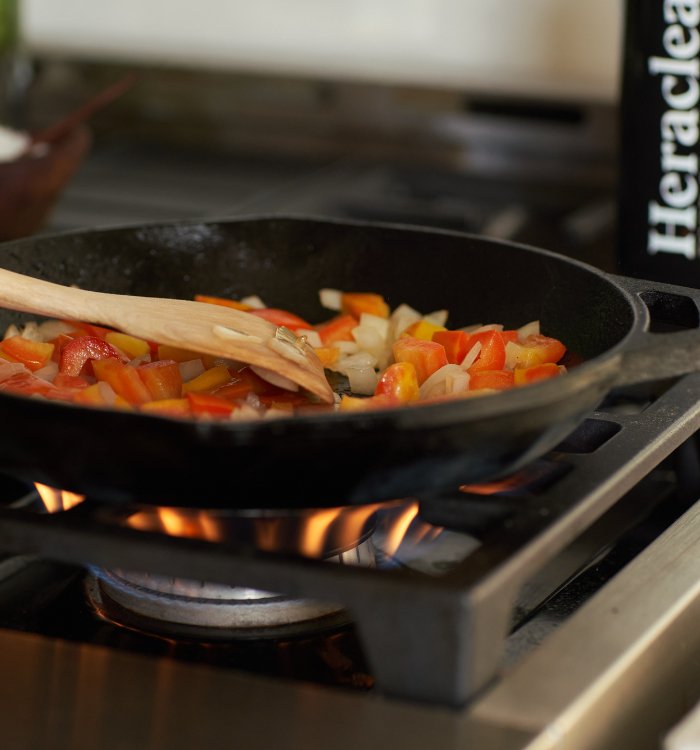
Cooking with Olive Oil: Everything You Need to Know
by Berk BahceciCooking with Olive Oil: Everything You Need to Know
Unraveling the Olive Oil Conundrum: Cooking at High Heat
Over the years, olive oil has earned a renowned spot in kitchens across the globe. From dipping and drizzling to frying and sautéing, this golden liquid has been a key player in numerous culinary ventures. However, one question remains a constant source of debate for chefs and health enthusiasts alike: Is it safe and beneficial to cook with olive oil at high heat? Let's delve into this topic, dispel some common misconceptions, and shed light on the health benefits and taste implications of cooking with extra virgin olive oil (EVOO).
Misconceptions About Olive Oil's Smoke Point
The "smoke point" refers to the temperature at which oil begins to smoke, releasing toxic fumes and harmful free radicals. It has been widely misunderstood that olive oil, specifically extra virgin, has a low smoke point and thus is unsuitable for high-heat cooking. This is not true my friend!
Quality EVOO, such as Heraclea's award-winning Early Harvest and Mature Harvest varieties, has a smoke point ranging from 374 to 405 degrees F (190 to 207 degrees C), making it safe for most cooking methods. If you want to dig deeper, read our article on the smoke point of olive oil here. On the contrary, the smoke point isn't the only—or even the most crucial—factor to consider when selecting a cooking oil.
Why Oxidative Stability Matters More Than Smoke Point
A more reliable indicator of an oil's resistance to heat is its oxidative stability. Oxidative stability refers to how well an oil withstands exposure to oxygen, heat, and light without breaking down or oxidizing. Olive oil's resistance to oxidation is a factor of its unique fatty acid composition as well as antioxidant properties. High quality EVOOs, which are rich in monounsaturated fats (MUFAs) and phenolic content, are prone to rapid degradation at high heat. On the contrary, vegetable oils have high amounts of polyunsaturated fats (PUFAs) and lack sufficient antioxidant content due to the refining process involved in their production, lowering their oxidative stability.
Olive Oil and High Heat: A Health Perspective
The health impact of cooking with olive oil at high temperatures is a prominent concern. While there is a plethora of conflicting information, several studies suggest that olive oil stands up to heat remarkably well.
For instance, a 2014 study in the American Chemical Society's Journal of Agricultural and Food Chemistry found that olive oil is more stable than certain seed oils for frying at temperatures between 320 and 374°F. A 2004 study found that olive oil—both extra-virgin and refined—produced fewer potentially harmful volatile aldehydes than canola oil. A 2012 study in the Journal of Food Chemistry also discovered that olive oil was much safer than sunflower oil after prolonged exposure to high heat.
While no study is comprehensive, and research continues, the existing evidence tilts in favor of olive oil's stability and safety under high heat, making it a better choice for cooking.
Olive Oil: A Valid Choice for High-Heat Cooking
The evidence from scientific studies we explored above suggests that using olive oil for high-heat cooking is not only safe but also better for your health. Plus, it is without a doubt that using olive oil will enhance the flavor of your dishes. True, olive oil is more expensive than other oils, but you now know the reason is that olive oil is nutritionally superior, offering a rich source of heart-healthy monounsaturated fats, antioxidants, and anti-inflammatory compounds. There you go, a bunch more of scientific research that shows olive oil's incredible health benefits. All in all, substantial evidence is accruing to support the premise that extra virgin olive oil should be the fat of choice when it comes to human health.